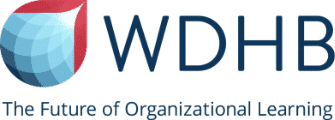Learning From The Adaptive Leaders Of The Apollo Program
How WDHB partnered with a Fortune Global 500 Company’s leadership development group to develop a highly customized leadership development program for their high potential executives.
Fortune Global 500 Financial Company
The organization is a leading global investment banking, securities and investment management firm that provides a wide range of financial services to a substantial and diversified client base that includes corporations, financial institutions, governments and individuals, and maintains offices in all major financial centers around the world.
The Goal: Cultivate High-Potential Leaders
Every year, a select group from this Fortune 500 global financial company participates in the fi rm’s world-class leadership development program led by their leadership development group. The focus of this program is calibrated each year to reflect the fi rm’s evolving strategic needs. The key objective of the 2018 initiative was to accelerate the select group’s ability to operate as future partners of the firm. The program curriculum focused on:
- Inspiring followership, binding talent to the firm, and leveraging diversity
- Enhancing personal impact with a focus on humility, resilience, and clear communication
- Forging client relationships, building new business, and managing risk
- Advancing the firm’s culture and core values internally and externally
The Participant Experience
We designed a customized experiential learning program tailored to address the curriculum with a specific focus on culture and personal impact.
Leaders from across the organization globally, participated in a three-day experience, which included the Apollo program. During the Apollo program, the cohort focused on developing a growth mindset, and opportunities to engage with and hear from senior leaders of the firm.
As part of the Apollo program, participants immersed themselves in the leadership stories of the men and women who built NASA’s space program, managed signifi cant change and achieved ambitious goals.
Why Apollo?
In 1962, when President John F. Kennedy announced his goal of a manned moon landing by the end of the decade, many people thought it impossible. NASA was a fledgling organization and had only sent a human into space for a 15-minute suborbital flight. The country was also in the midst of dramatic social and political upheaval. Some questioned whether it was the right time for the President to set such an audacious goal.
But Kennedy knew that landing a man on the moon would be crucial to securing America’s dominance in the space race. So, despite significant skepticism from many, he held firm to his position and agenda, which required strong and focused leadership. The NASA professionals who made the moon landing happen—from the Administrator of NASA to the team that designed the rockets—also displayed resilience and determination as they carried out Kennedy’s vision. NASA’s leaders and their commercial partners together overcame remarkable challenges,including the Apollo 11 lunar landing and other critical Apollo missions.
Learning from Adaptive and Visionary Leaders
During the Apollo program, participants visited different locations at the Air & Space Museum in Washington, DC, as well as the Udvar Hazy Center near Dulles Airport, Virginia. The program incorporated historical artifacts, including engines, rockets, and the spacecraft used in the moon landing. At each location, participants learned the story behind the artifact and the motivation and decision-making of the leaders involved in the story. Then, with guidance from an WDHB facilitator, they discussed how they could apply the leadership lessons from those stories to their own leadership development.
The story of the women featured in the film, Hidden Figures (Katherine Johnson, Dorothy Vaughan and Mary Jackson) was one of the key leadership studies designed specifi cally for the program. We partnered with our client to co-create the debrief on this story to focus on critical topics of diversity. The participants engaged in discussions on removing “hidden” roadblocks that prevented their people from maximizing performance and increasing potential. They explored opportunities for their team to step up, create opportunities to maximize their potential and increase the presence in the firm.
They also delved into the story of James Webb, who was the Administrator of NASA from 1961 to 1968. Webb played a crucial role in the success of the space agency during the transformative Apollo years. When Webb took the helm of NASA, he worried he didn’t have the right technical background for the job. So, he built an executive team whose strengths complemented, and at times exceeded, his own. The firm’s participants studied how Webb led others with confidence while demonstrating humility and an awareness of his own shortcomings. They discussed how they could similarly seek a diversity of talent when building their own teams.
Participants immersed themselves in these and other vivid leadership case studies during the program.
“I took a lot out of it, and have been reflecting on the learnings constantly,” one participant said after the experience. “The dialogue, the relationship building, the growth, was unparalleled,” said another.
A Highly Customized Experience
We wanted to ensure that every aspect of the Apollo Experience was relevant and applicable for the participants. We embedded an WDHB facilitator in the first day of the global experience to capture discussions among the participants.
Having an embedded facilitator allowed us to “change the tires on the car while it was moving.” The facilitator briefed the WDHB team on the conversations from the first day, and we recalibrated the next two days to support and reinforce the learnings from day one. This maximized the relevance and cohesiveness of the program from beginning to end. We used the same adaptive approach in the design that we were teaching in the program.
Also, in the six weeks leading up to the program, WDHB facilitators met weekly with the leadership development group’s executives to ensure that the program would “speak the language” of the firm’s participants, be consistent with the firm’s culture, and meet the firm’s evolving business needs.
One of the financial organization’s executives said, “We really appreciate all the time you spent working together with us in the lead up to the Global Experience, your flexibility around the agenda, your willingness to work together with us to incorporate the conscious leadership components and ultimately to ensure we created maximum impact for the participants.”
Applying The Lessons From Apollo
The cohort came away with lessons they could apply directly to their own business and personal leadership development. Several participants spoke of the lasting impact the Apollo program has had on their personal leadership development. Some said the program strengthened their communication skills and showed them how to use “storytelling” to improve their influence.
Others said the program helped them build stronger relationships and inspire others to follow their vision. “This is the best program I
have ever joined. Very insightful feedback with great internal networking,” one participant said. Others said that the experience has had a lasting impact on their leadership growth. “It has enhanced my bond to the firm and has opened my eyes to ways to improve my performance both in my business and personal life. A very genuine and real approach to talent development, which will pay significant dividends both immediately and into the future.”
Four months after the Apollo experience, participants were surveyed on the impact of the overall program. The responses were overwhelmingly positive:
To what extent did this program help you?
[1 = not at all, 5 = to a great extent]
- Enhance your preparedness for future leadership roles: 4.68 of 5
- Learn new leadership techniques that will benefit the firm, your business, and your team: 4.63 out of 5
- Build deep relationships with your peers (other members of the class): 4.63 out of 5

